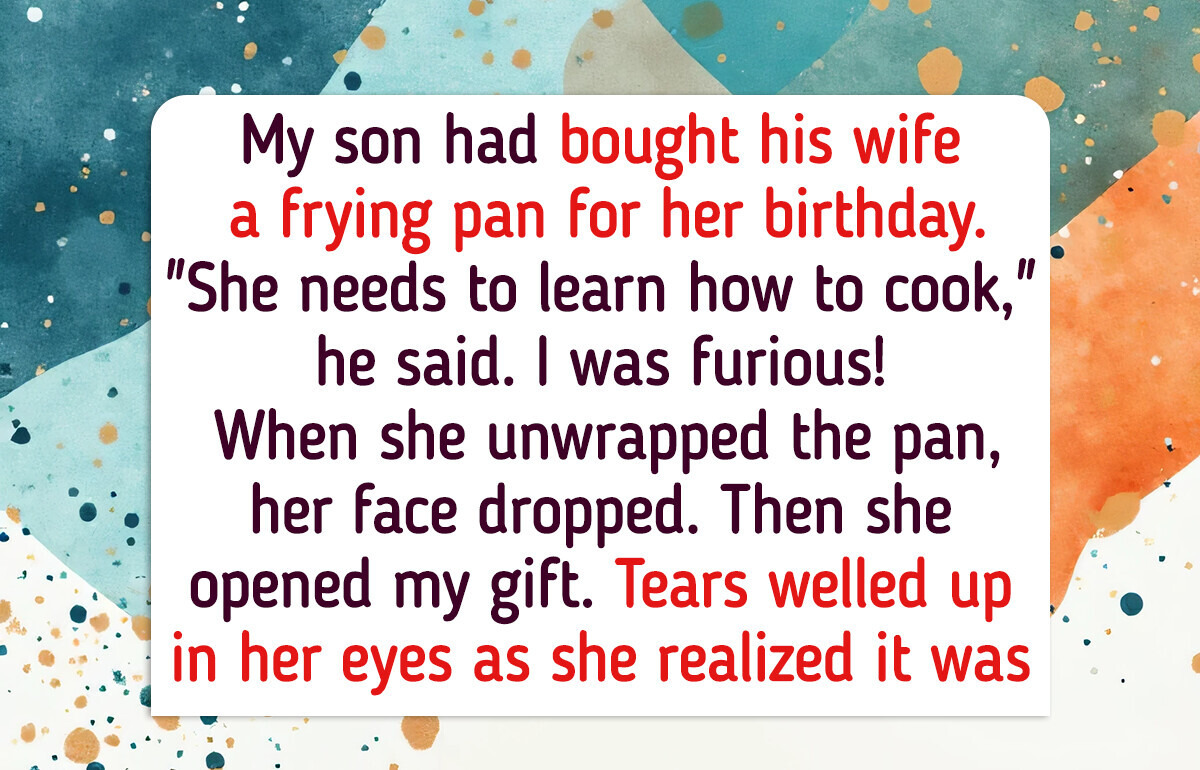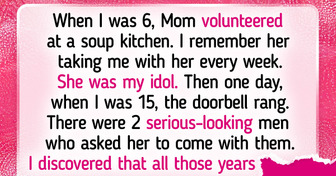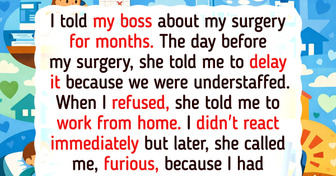Maybe you should have had a talk with him why not to get her a frying pan, then gave him some ideas.
I Used a Christmas Gift to Teach My Son a Lesson About Marriage

Our reader’s journey is one that many can relate to—trying to do what’s right in a situation filled with emotional complexity. As a single mother who worked hard to instill kindness and respect in her son, she never expected to find herself quietly confronting him over how he treated his wife. But when she saw signs of disregard in his marriage, she knew she had to act with love and tact.
This is Nadia’s letter:

Thank you, Nadia, for bravely sharing your experience. Your story reflects deep love, self-awareness, and the emotional courage it takes to protect those we care about. Let’s look at the key themes you’ve raised.
1. Should parents get involved in their grown children’s marriages?
It’s usually best for parents to respect boundaries when it comes to their adult children’s relationships. But when emotional harm or disrespect is present, staying silent can feel like a betrayal of your values.
Your intervention was gentle but effective, by using humor and a thoughtful gift to make a point without starting a fight. That kind of quiet wisdom shows how influence doesn’t have to be loud to be powerful.
2. How to navigate a disrespectful dynamic in the family.
It’s tough to witness a loved one treat their partner poorly. In these situations, private and compassionate communication is key. A calm, non-judgmental conversation, like saying, “I’ve noticed some comments that might come across as hurtful”, can open the door to self-awareness without triggering defensiveness.
Often, people fall into harmful habits without realizing it. Naming it with love gives them a chance to change.
3. Healthy criticism in marriage: What’s the right approach?
Disagreements happen in every marriage, but how feedback is delivered can either heal or harm. The focus should be on behavior, not personal attacks.
Instead of “You never help,” try “Can we find a way to share chores more equally?” If your son is open, encourage him to bring kindness and gratitude into conversations with his wife. A little appreciation goes a long way.
4. Supporting a son or daughter-in-law.
You’ve already shown your daughter-in-law that she matters. Recognizing her efforts, whether it’s her cooking, career, or contributions to the family, builds her confidence and trust in you.
In-laws can foster respect in the family by leading by example. When you treat everyone with care, it creates a ripple effect that encourages harmony.
5. Teaching respect at any age.
While values are taught young, it’s never too late to reinforce them. Think about the example you set. Did your son grow up seeing respect and empathy modeled?
If there were moments that fell short, owning them can be powerful. Honest conversations about respect, love, and partnership can help him reflect on his own behavior now as an adult.
6. Managing tensions gracefully during family gatherings.
Holidays and birthdays can heighten emotions. Prevent conflict by setting the tone. Emphasize kindness, shared memories, and inclusive behavior. If things get tense, redirect gently: “Let’s focus on making good memories today.”
Humor, like your clever gift, is a great way to ease tension and communicate without confrontation.
7. Can single parents instill strong values?
Absolutely. Single parents often carry a double load, and your dedication to raising a respectful child shows. You’ve laid a strong foundation.
Parenting doesn’t end when kids become adults. You still have the power to guide and influence—with love, honesty, and the example you set.
8. Creative, meaningful gift ideas.
Your frying pan and coupon was both hilarious and heartfelt, ultimately a perfect mix. Memorable gifts don’t have to be expensive. Thoughtful, personalized gifts, like an experience, a favorite book, or a handwritten note, can speak volumes.
Show your daughter-in-law that you see and appreciate her as an individual. A well-chosen gift can say what words sometimes can’t.
Our final thoughts

IDC if my son was 18 or 80 if he EVER treated his wife like that I'd bop him off side his big inflamed head!! Start raising men ladies and stop raising entitled little boys!!
Nadia, your story shows how love, even when expressed through tough moments, can lead to growth. You didn’t fail your son, you gave him a chance to reflect, to do better, and to strengthen his marriage.
Your daughter-in-law likely feels supported, and your son has been offered a mirror to consider his actions. Keep leading with heart, humor, and honesty. You’re not only nurturing your family, you’re also helping shape a more compassionate future for them all.
Not all mothers are so full of compassion when it comes to their daughters-in-law, and these 18 dramatic stories of terrible in-laws will prove just that.
Comments
Related Reads
12 True Stories So Twisted They Feel Like a Film Noir

I Paid for My Seat — I Refuse to Give It Up to a Spoiled Child

I Canceled Thanksgiving After My Husband Secretly Invited His Ex-Wife - His Reason Was Revolting

10 Nannies Who Discovered Secrets About the Families They Shouldn’t Know

I Refuse to Pay My Daughter’s College Tuition — Her Stepdad Is a Millionaire

12 Moments That Teach Us to Stay Kind, Even When Life Becomes Heavy

12 Moments That Show Quiet Kindness Can Fix Anything

12 Moments That Show Romance Is Really About Small Acts of Kindness

12 Moments That Teach Us to Choose Kindness Even When Life Turns Unfair

12 Moments Where Quiet Kindness Turned Strangers Into Family

I Was Denied Sick Leave Because My Boss Said It Was “Inconvenient Timing”

I Refuse to Forgive My Wife for What She Did to My Son








